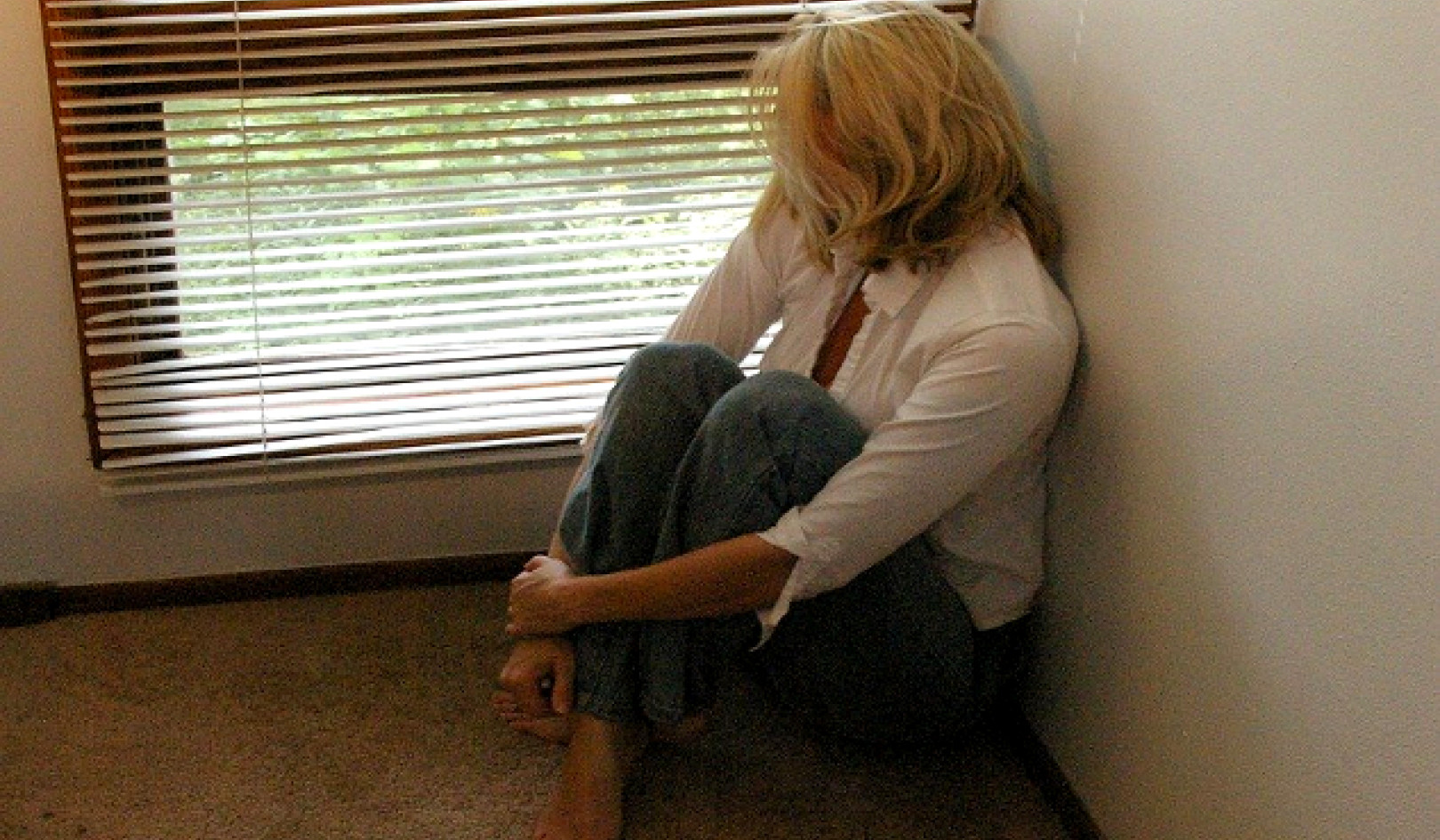
Image by Michelle Lucas
There are many parents who would never imagine that their child doesn't have the nerve to talk with them. When I first created my school programs more than twenty years ago, I was amazed at how many thousands of children told me they felt this way and hadn't let their parents know.
If your child had the chance to write his or her feelings anonymously about how you relate to each other, what do you think he or she would express? How close do you think your child feels to you? How close do you feel to your child?
Maybe you've never had the closeness with your own parent that you'd like to have with your child. Maybe you find it difficult to talk about your own feelings. Maybe it's even hard for you to say, "I love you". Over the years I have met so many parents and children who told me they couldn't.
Even with the best parent/child relationships, everything is always changing. Nothing can be taken for granted. Figure that anything you share in a positive, loving manner will have a ripple effect. Being close with your child can be a life-changing, fulfilling, enriching lifetime endeavor. I can't think of a more important role as a parent.
I don't know your child. (Maybe you feel like you don't know your child, either!) However, I believe it's possible for parents to get closer to their children. The ability to work at developing a closer relationship with our children is a process that parents and children can work at and grow with over time.
No matter how difficult things might seem, keep in mind that most children wish they could be closer with their parents. Even when things go horribly wrong, those can be the most important growth experiences. So don't be too hard on yourself. Go slowly, and take things one step at a time. Think of this process as an adventure. Anything you do to try to improve your relationship with your child is wonderful. Your efforts to communicate more openly and become closer can have lifetime benefits for your child, as well as for yourself.
Whether we have one child or ten, we can only attempt to embrace, love, and appreciate each child to the best of our ability. The interaction with each child is going to be different. And certainly, each of our children will have his or her own perception of who we are and how we respond to them.
We need to understand our children's challenges and fears in order to become even closer, but we must also take stock of ourselves. Among the many key factors we need to examine are the way we respond to our children, the manner in which we communicate, and how clear we are about what we can and cannot control in their lives.
As you examine your own style of relating to your child, please keep in mind, the purpose here is not to fuel frustration about not having addressed these issues years ago so you could have a more open relationship today. Perhaps that's the point: It is today. The fact is, we can't go backward. We can't change what happened five minutes ago with our kids, much less five years ago. What you are doing today is what's important.
We can only do our best with our children. Especially if you're reading this right now, I have to believe that your heart is in the right place. You deserve to trust and value that your intentions are pure.
In the relationship between parent and child, as in any relationship, responsibility applies to both parties. Especially when children are teens and preteens, I believe that no matter how they feel about relating to us, as parents there is still much we can and must do in their regard. Our example and our guidance can be significant in making a difference in how they feel about themselves, how they relate to others, and how prepared they are to face the issues and experiences that are part of growing up today.
With that in mind, let's go forward. It is my hope that the insights and approaches that I have included in this article will help you enrich and broaden the way you and your child are able to relate to each other.
WHAT ARE THE DYNAMICS BETWEEN YOU AND YOUR CHILD?
I want my mother to be closer to me. I with I could talk to her about my problems.
Before reading further, you might find it helpful to grab a notebook, and seriously consider noting your thoughts on the following:
HOW WOULD YOU DESCRIBE THE NATURE OF YOUR INTERACTION WITH YOUR CHILD?
-
Strained? Easy? Rocky? Argumentative? Do you feel a sense of warmth between you?
-
Are you able to talk together?
-
When you start discussing something, do you end up yelling? (Always? Sometimes? Never?)
-
Do you feel a sense of connection with your child?
-
Can you be honest with each other, even about difficult issues?
-
How do you respond if you disagree with your child? How does your child respond if he or she disagrees with you?
-
What does it feel like when you talk with each other?
-
Do you get the sense that your child feels you listen attentively when he or she is speaking to you? (Always? Sometimes? Never?)
-
If you're reading or watching television, how do you respond if your child wishes to have your attention?
-
Do you often make a joke of what your child tells you? Do you think your child believes you take him or her seriously?
-
Are there any topics that are difficult for you to discuss with your child?
Sex
Boyfriends / girlfriendsDevelopment/maturation
Illness/death
Achievement in school
Family stress
Others?
-
Are there any topics that you think your child finds difficult to talk about with you?
-
How do you respond when your child disappoints you? Goes against your word? Gets into trouble?
-
What, if anything, about yourself have you consciously held back from your child?
-
How much alone time do you spend with your child?
-
What changes do you wish could take place in the dynamics of your interaction with your child?
My purpose for presenting you with these questions is strictly for self-examination, not to have you check how many yes or no answers you had so you could determine what "how you and your child relate" category you might fit into. The point of this examination is to further help you understand as much as you can about what factors are influencing the way you relate to your child and how your child relates to you.
If you haven't recently asked your child how he or she feels about the way you talk with and understand one another, perhaps this is an ideal time to do so. Even if your feelings are positive and you have no reason to question that your child feels the same way, it's still a good idea to do a double-check. If you confirm that you're right about things being positive, at the very least it can be a wonderful opportunity to let your child know how much you appreciate that this is so.
Why do my parents hate me?
If you don't feel as positive as you want to about your relationship with your child, consider the specific factors that might cause you to feel this way. To clarify your thoughts, it often helps to write these issues down. Think through these observations. No matter how bad things may seem, and no matter how hard it might be to imagine how you will ever have a close relationship with your child, it's certainly worth every effort to work at it.
THE FIRST STEP TO GETTING CLOSER
Before even attempting to address any of the specific issues that you identify as concerns, the first step you can take is simply to let your child know you'd like to get closer.
All you actually need to say for starters is:
"I've been thinking, and it would really mean a lot to me, if we could improve our relationship. I would love for us to be closer."
You can say this in a written note or aloud. Either way, it's a beginning. This is all about opening the lines of communication. It may not be easy to do and can be very awkward when you initiate the effort, especially if the lines have been clogged for years. That's okay. Remember, you can't go backward. At this point, what's most important to get across to your child in the most simple terms is that you love him or her very much, and that how you relate to each other is something you're hoping can be worked at together in order to become closer and feel better about your relationship.
WHEN IT'S TIME TO TALK
When you feel you're ready to address some of the specific issues of concern that you think are affecting how you and your child relate to each other, it's important to figure out a time to talk that can be open ended. This is not a conversation to be rushed.
Since it's possible your child may think that something must be wrong if you wish to actually set aside time to speak with him or her, you might find your child will respond positively to an approach such as, "I'd love to speak with you about something I've been thinking about. Good things. Nothing is wrong."
Then you can figure out together when it will be possible to spend some alone time with each other. You might combine your talk with an activity you enjoy, such as taking a walk or going for pizza. If you have a car and are planning to drive somewhere with your child for any length of time, that's often an excellent setting for a personal, private conversation. If things are going well on your way home, you can always continue your talk by deciding to miss your street... and keep talking.
Published by Owl Books/Henry Holt; ©1999
Article Source:
Get a Clue!: A Parents' Guide to Understanding and Communicating with Your Preteen
by Ellen Rosenberg.
 This practical companion to Reviving Ophelia and Real Boys shares the concerns of preteens in their own words and advises parents how to approach them confidently and effectively. A communication bible that parents will return to again and again, Get a Clue! is sure to help parents and their children become closer and form a bond of trust that will last through middle school, high school, college, and beyond.
This practical companion to Reviving Ophelia and Real Boys shares the concerns of preteens in their own words and advises parents how to approach them confidently and effectively. A communication bible that parents will return to again and again, Get a Clue! is sure to help parents and their children become closer and form a bond of trust that will last through middle school, high school, college, and beyond.
Info/Order this book
About The Author
Ellen Rosenberg is also the author of Growing Up Feeling Good. She is a lecturer whose interactive presentations have reached more than a million students, teachers, and parents in forty-six states. She holds a master's degree in education and is certified as a sex educator.























